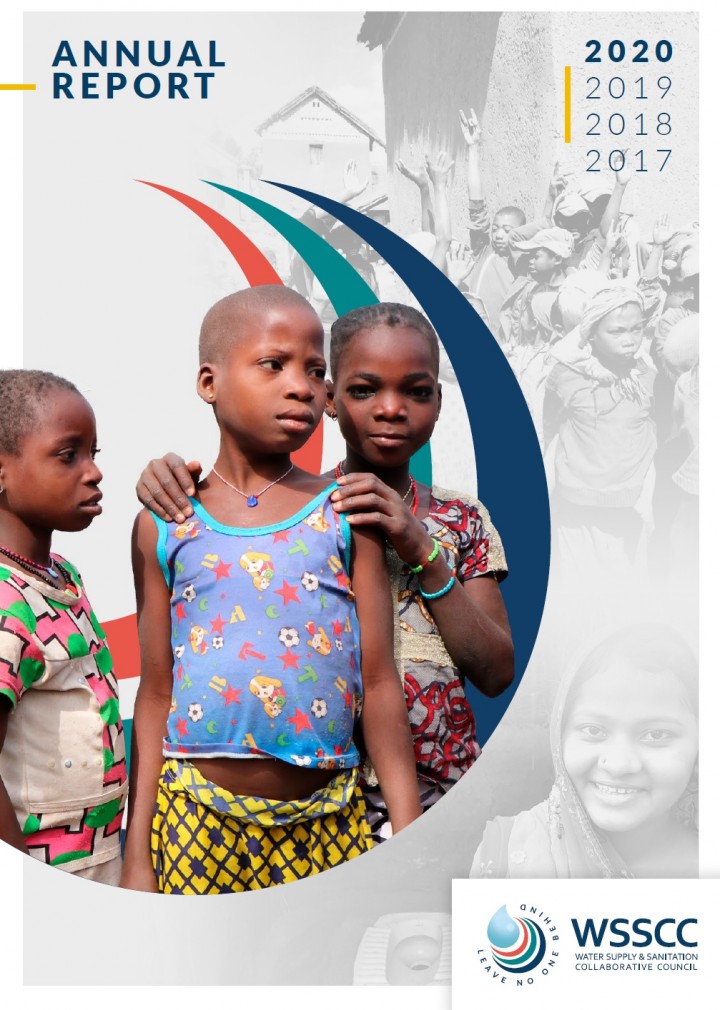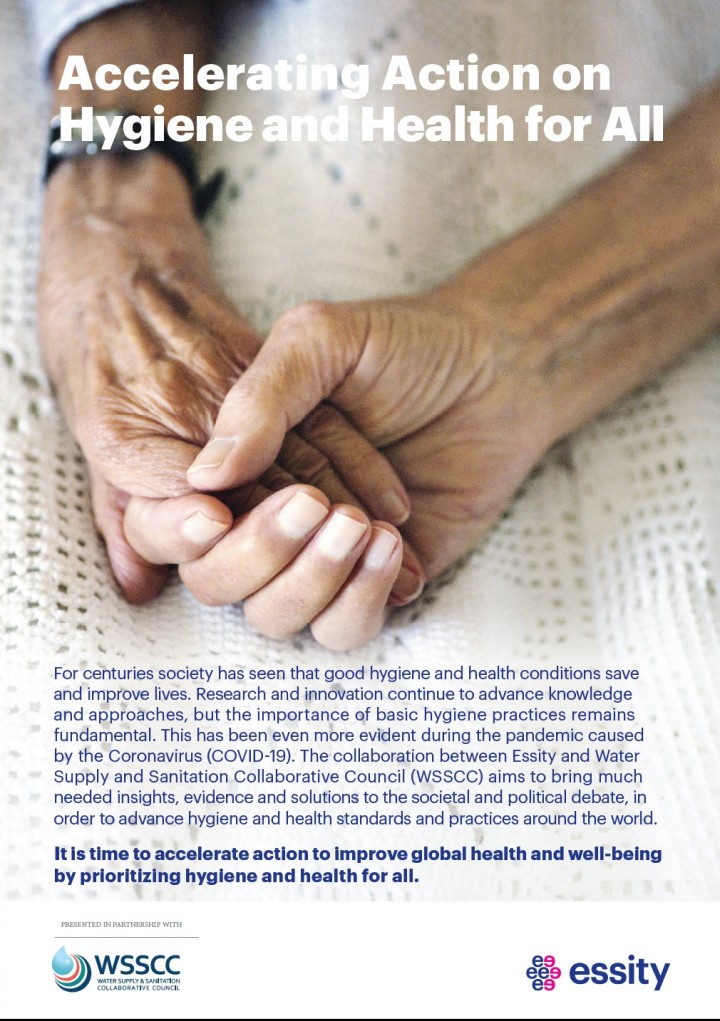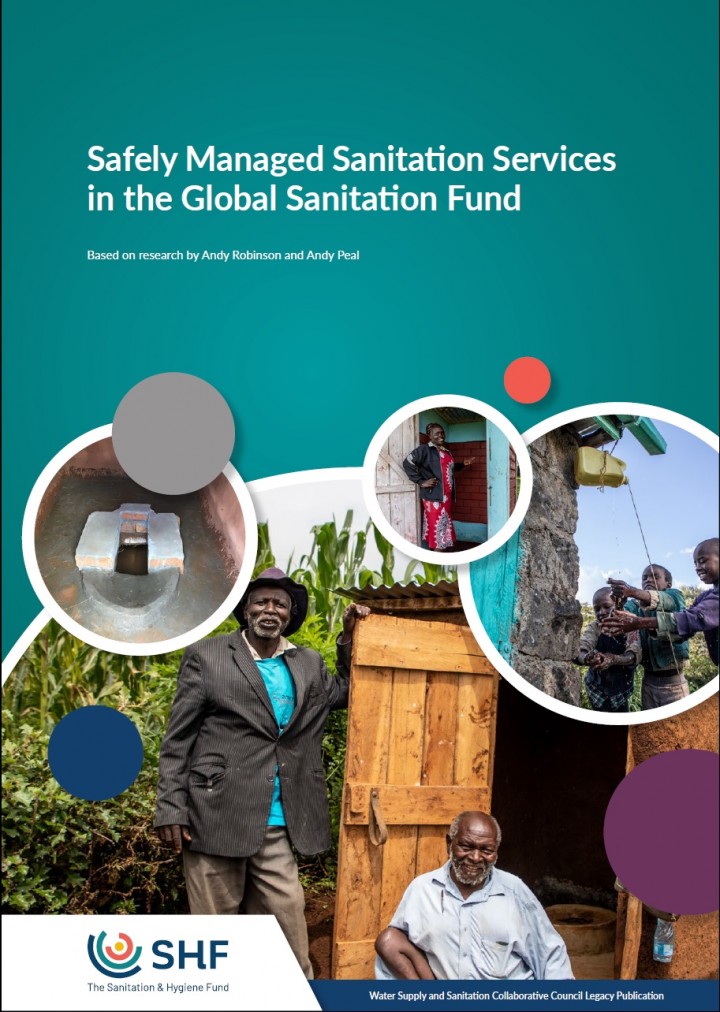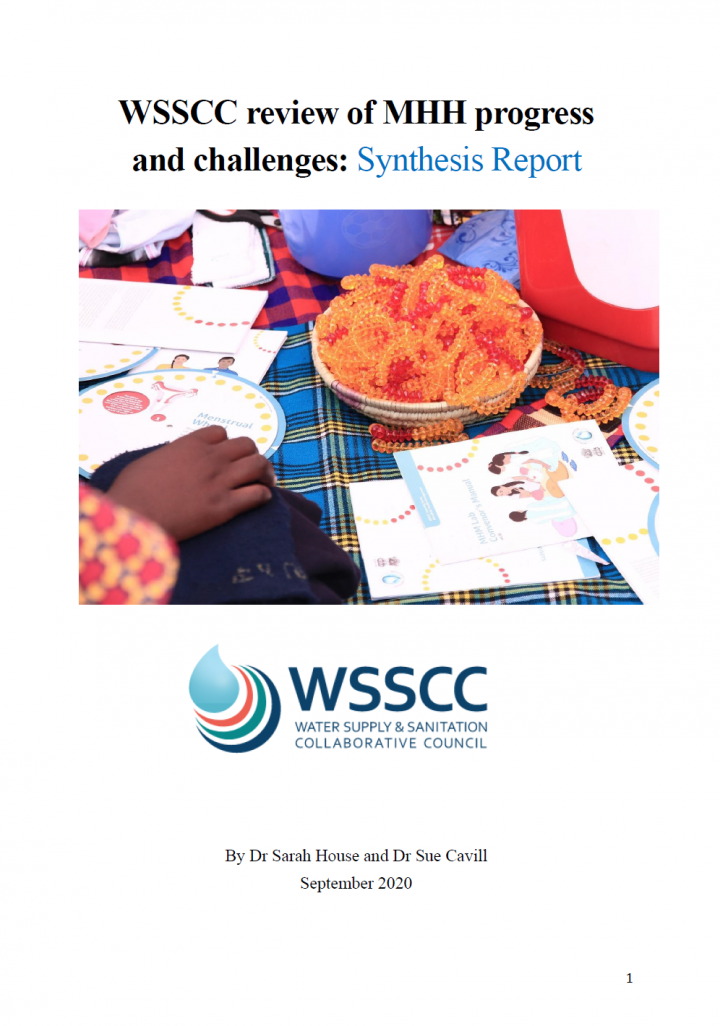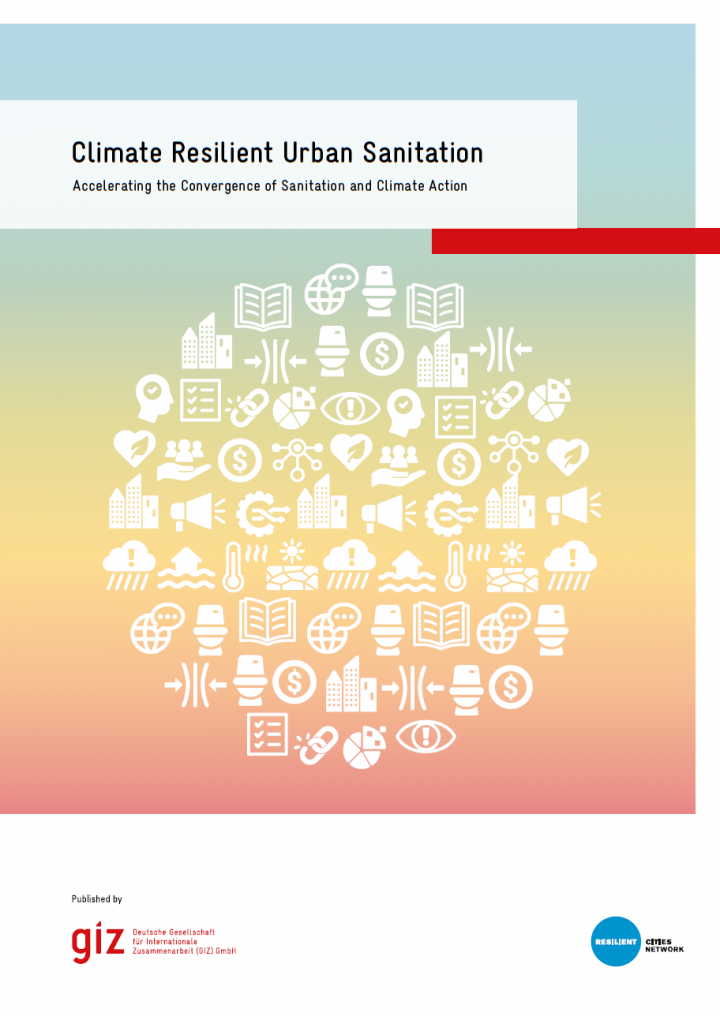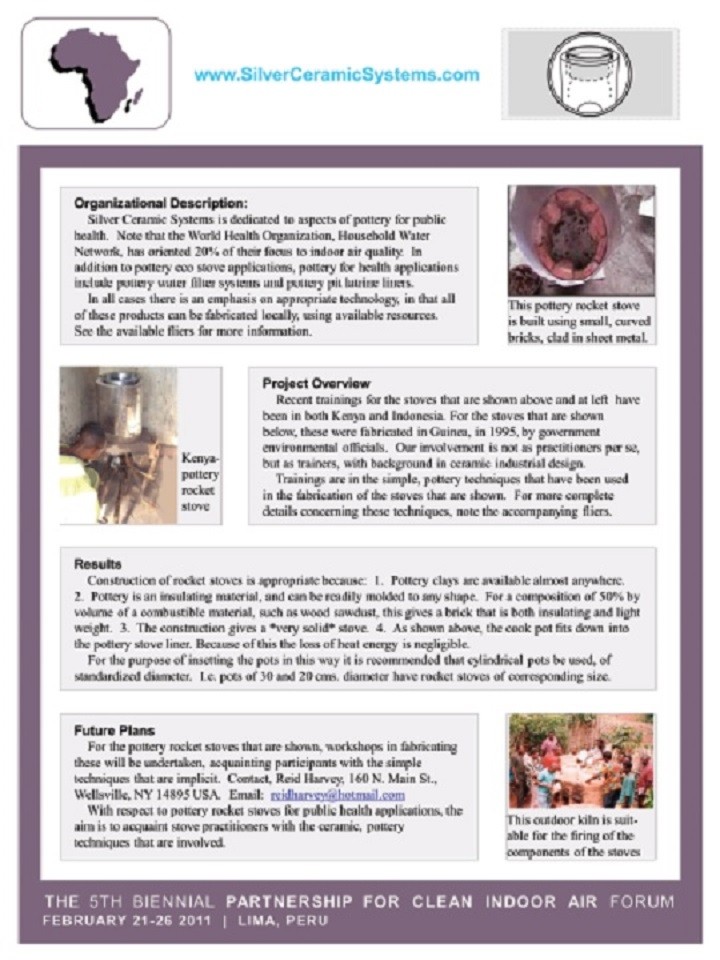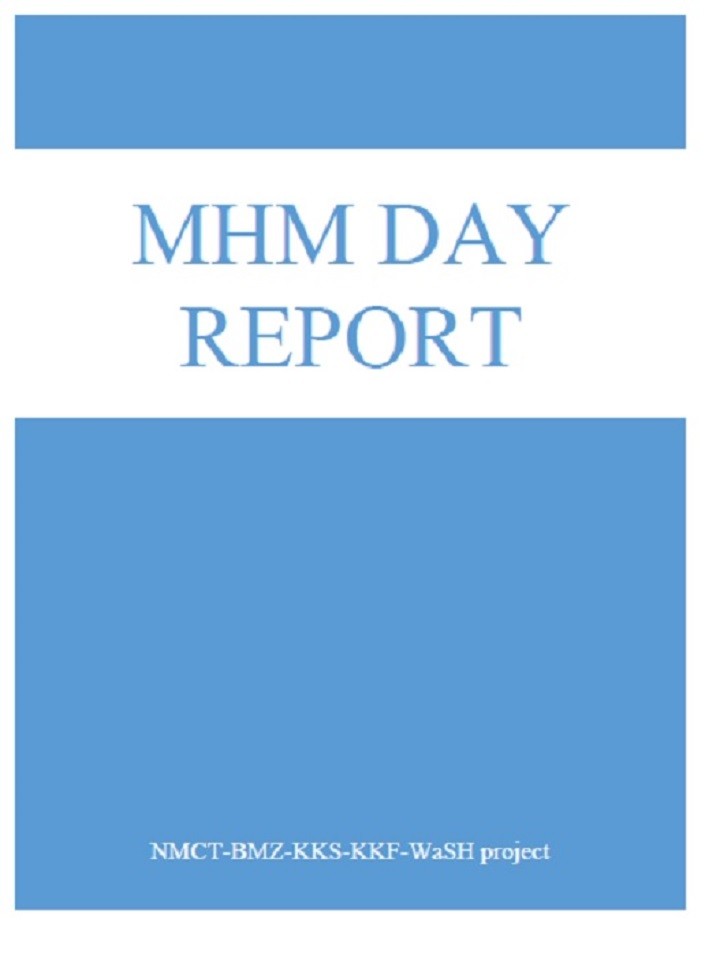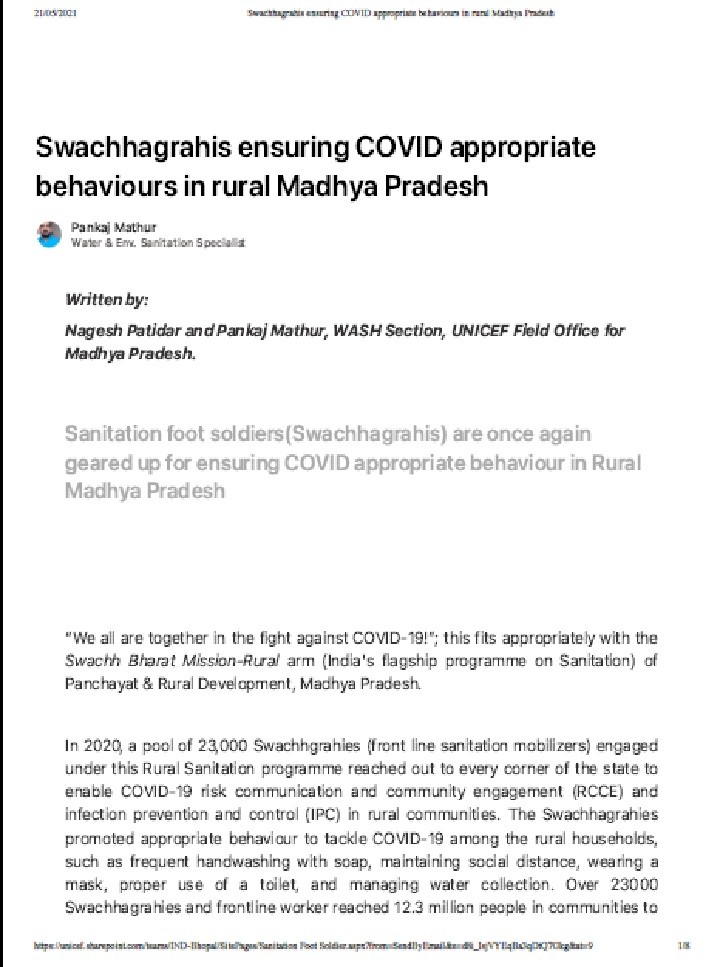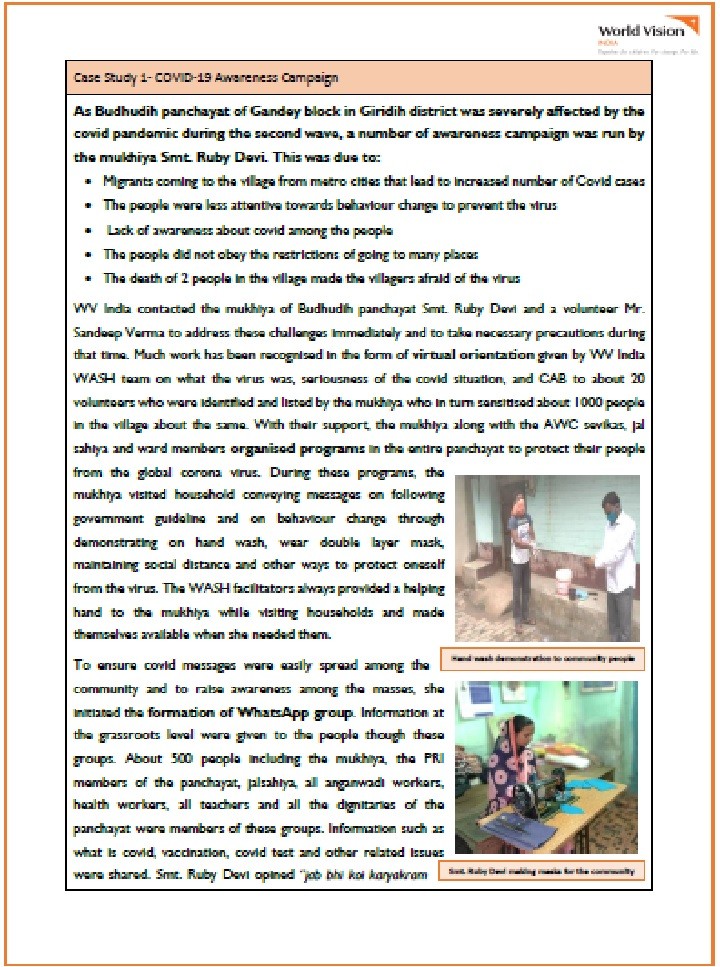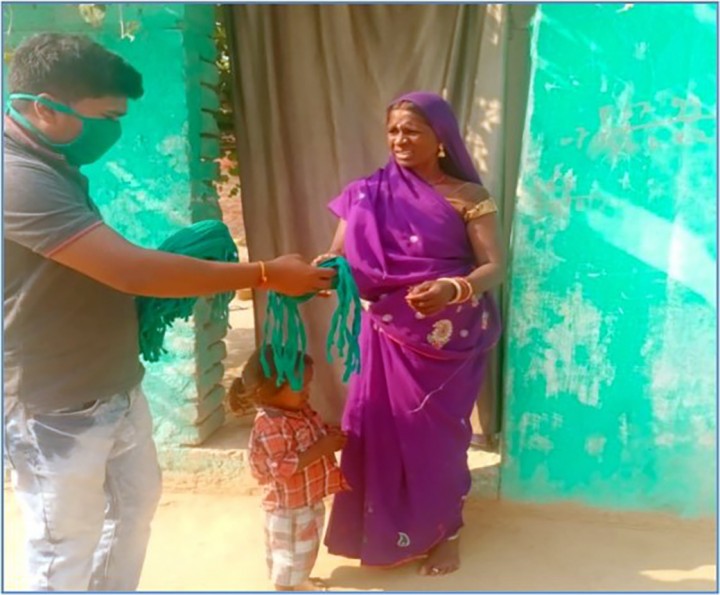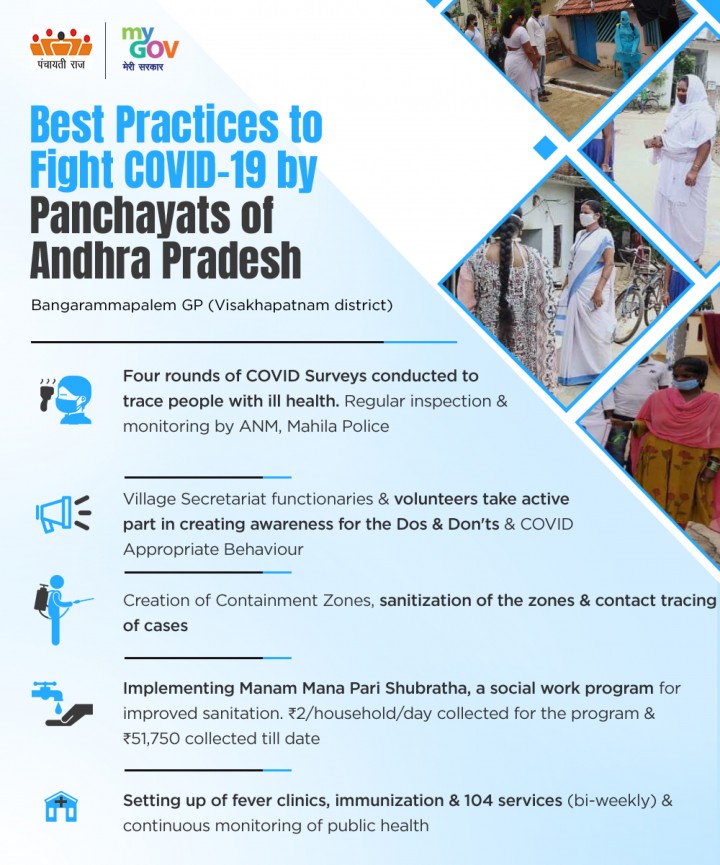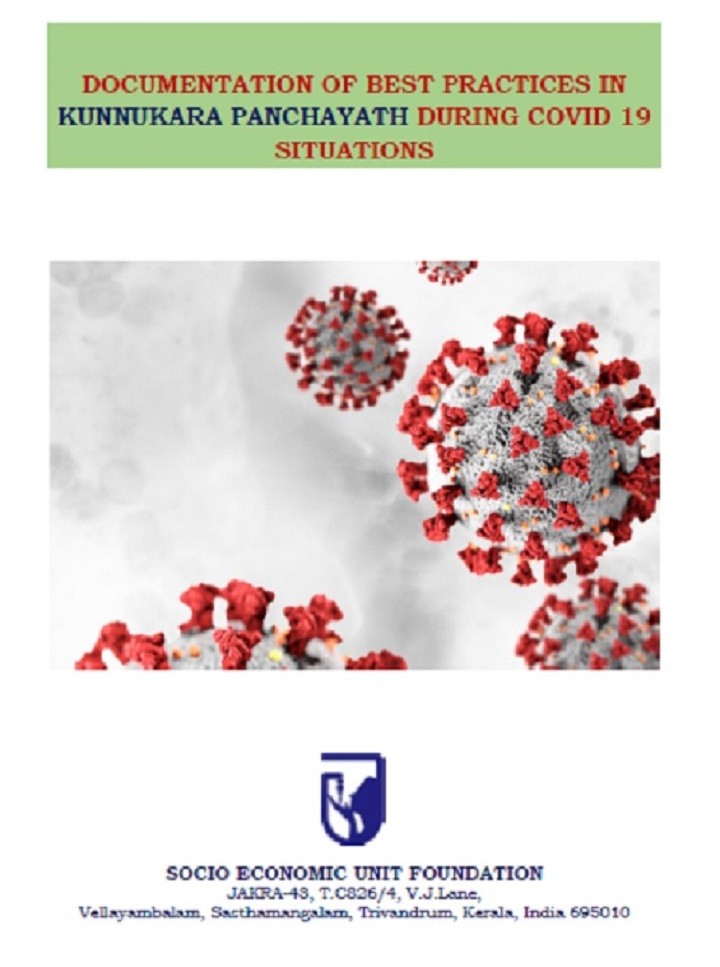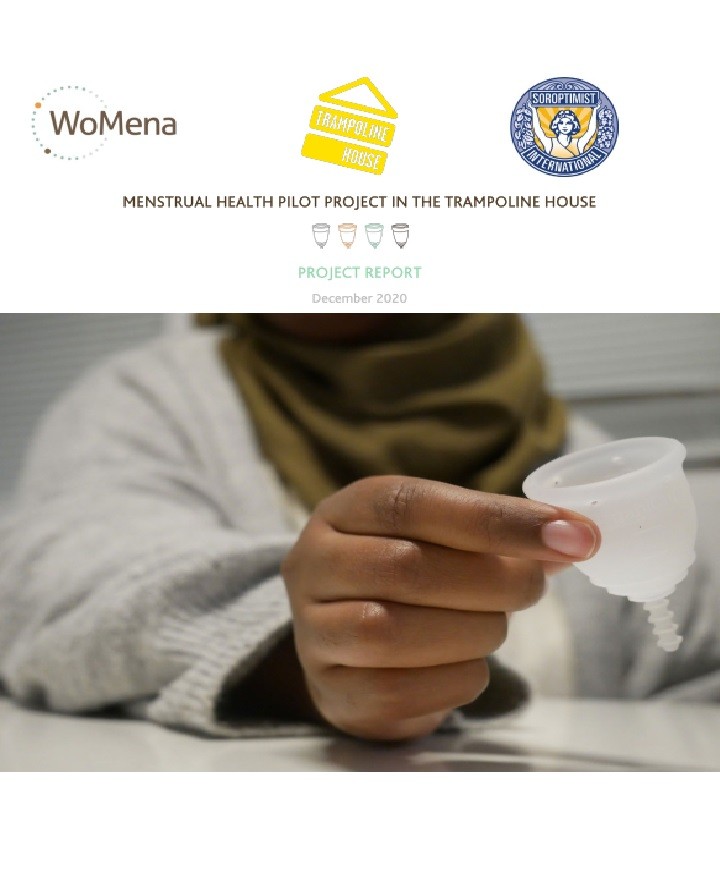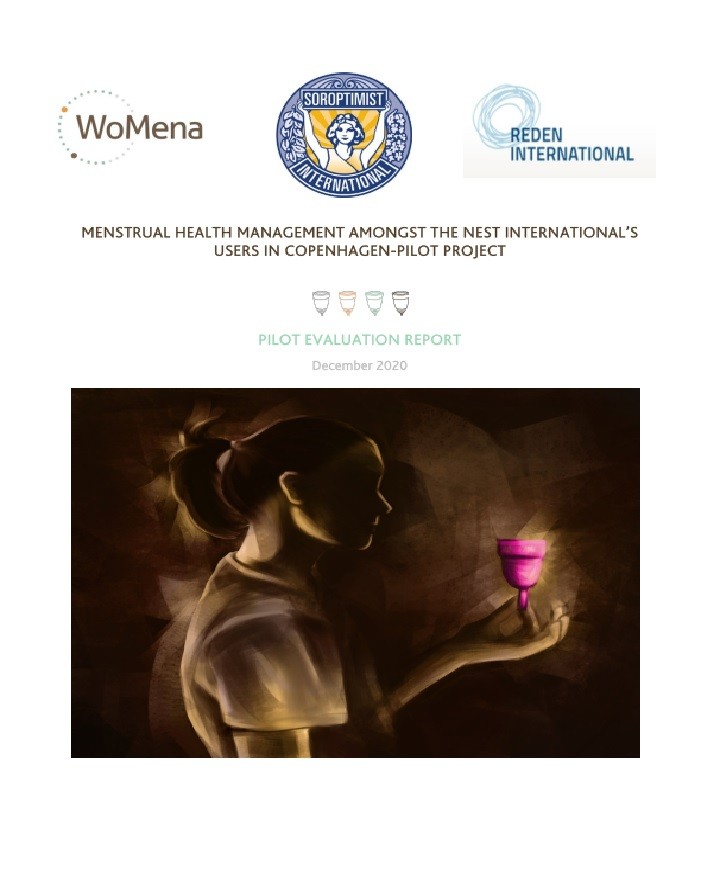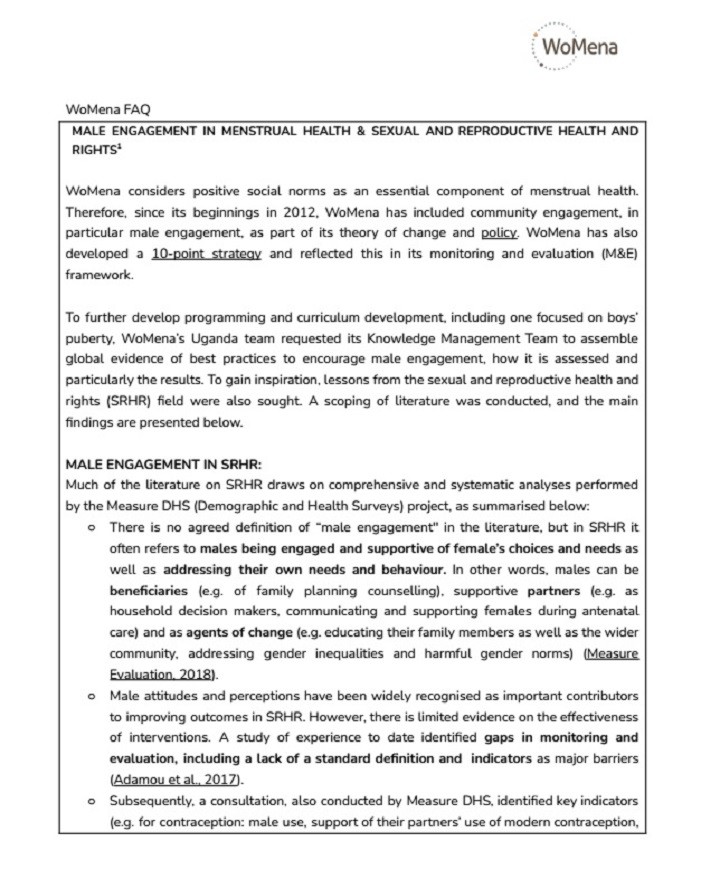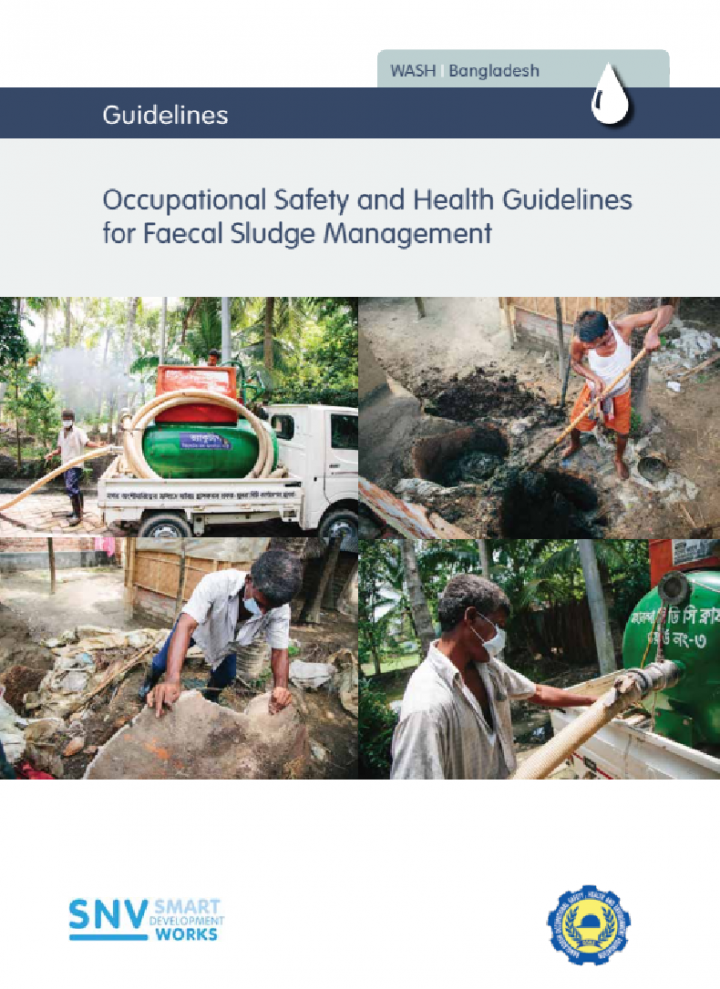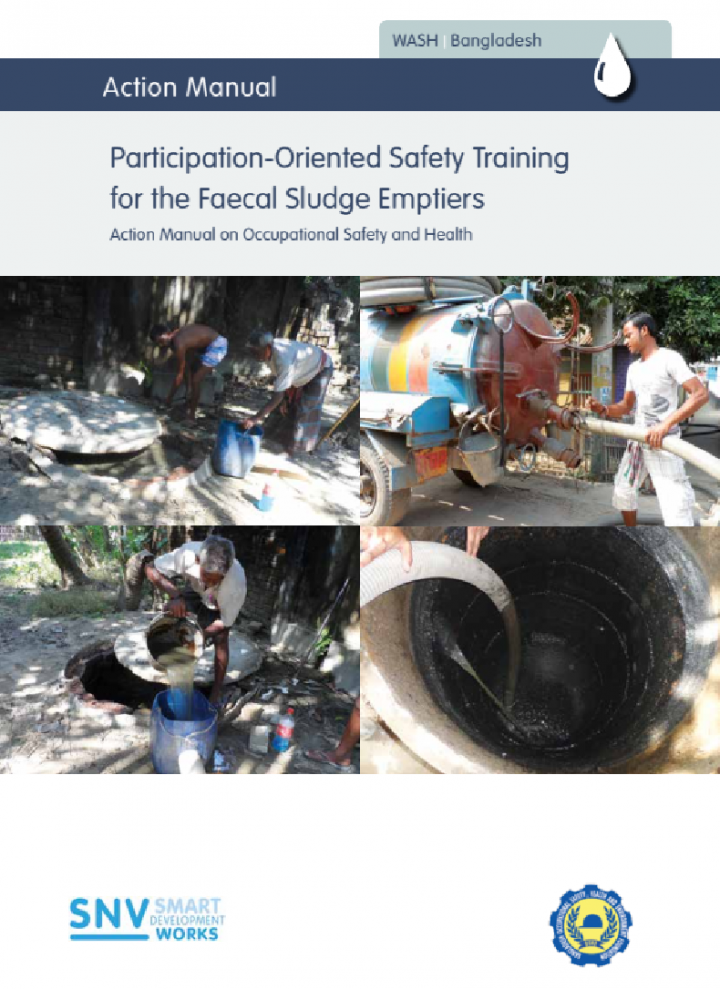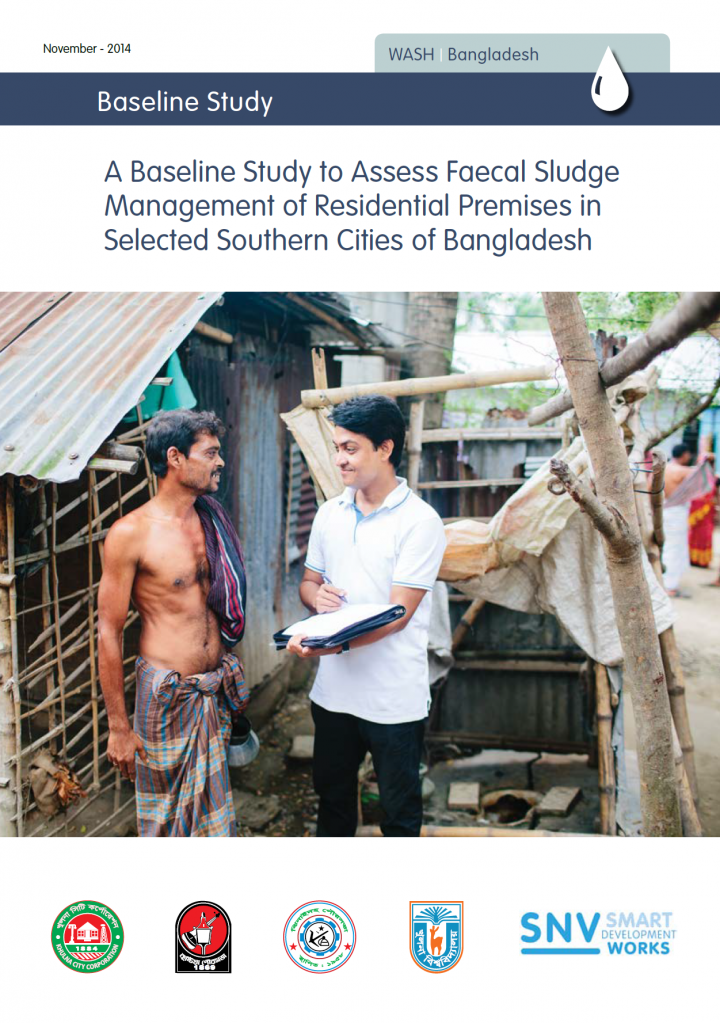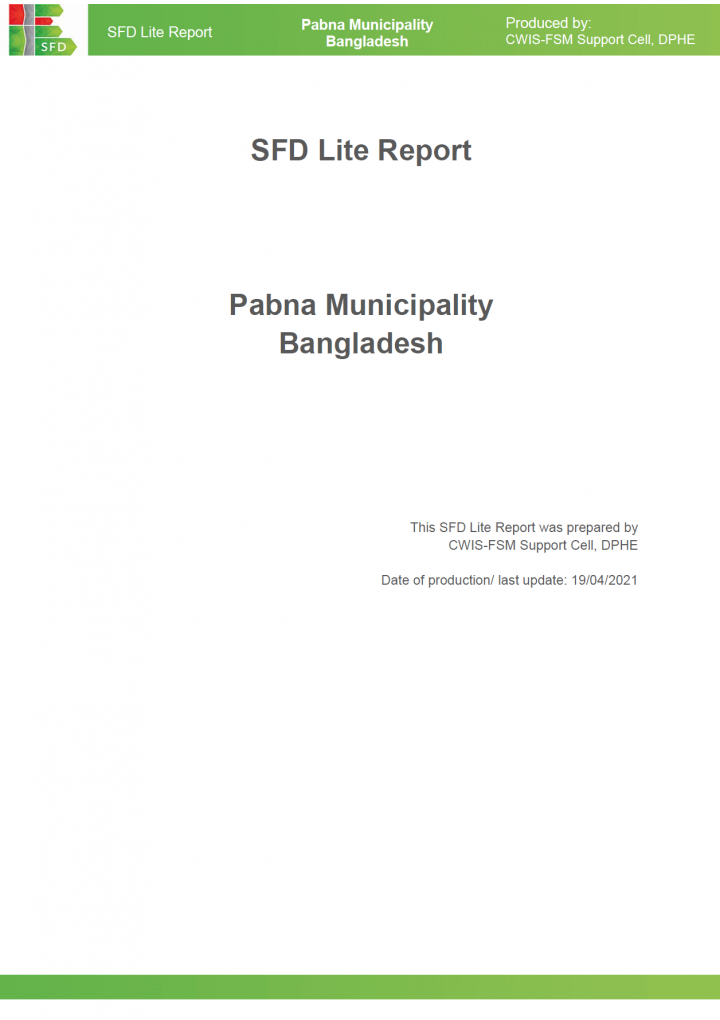Coates, S., de Buhr, E. (2021) WSSCC 2020 Annual Report
For three decades the Water Supply and Sanitation Collaborative Council (WSSCC) has operated as a global, multi-stakeholder membership and partnership organization working with poor people, organizations, governments, and local entrepreneurs to improve sanitation and hygiene at scale. WSSCC has been committed to a world in which everyone, everywhere can practice safe sanitation and hygiene with dignity and over the years has contributed by enabling all […]
Groth, M., Coates, S. (2020) Accelerating Action on Hygiene and Health for All
For centuries society has seen that good hygiene and health conditions save and improve lives. Research and innovation continue to advance knowledge and approaches, but the importance of basic hygiene practices remains fundamental. This has been even more evident during the pandemic caused by the Coronavirus (COVID-19). The collaboration between Essity and Water Supply and Sanitation Collaborative Council (WSSCC) aims to bring much needed insights, […]
Robinson, A., Peal, A. (2020) Safely Managed Sanitation Services in the Global Sanitation Fund
Sustainable Development Goal 6 for water and sanitation calls for the realization of safely managed services (SMSS) for everyone by 2030. While there has been significant research and implementation to improve the sanitation service chain in urban settings, little guidance is available on how to achieve and sustain SMSS in rural contexts. In 2019, WSSCC commissioned this study to examine to what extent Global Sanitation […]
House, S., Cavill, S. (2020) WSSCC Review of MHH Progress and Challenges: Synthesis Report
This report explores the current situation of MHH in selected focus countries, reflecting on the recent progress made and the remaining challenges. The three in-depth country studies looked at progress at three levels: a) nationally; b) progress catalysed with the support of WSSCC funding (outside of the Global Sanitation Fund, GSF); and c) progress achieved through the GSF-supported programmes. The report considers MHM progress in […]
Mikhael, G., Hyde-Smith, L., Twyman, B., Trancón, D. S., Jabagi, E., & Bamford, E. (2021) Climate Resilient Urban Sanitation Accelerating the Convergence of Sanitation and Climate Action
Cities are incredibly vulnerable to climate change. Although sanitation is a critical urban system and service, it is not widely considered a climate change issue. While water has long been recognized as a central component of climate change adaptation, there is only sparse research and evidence on the impacts of climate change on sanitation infrastructure and services, and therefore limited discussion of effective approaches for […]
Harvey, A. R. (2011) The Pottery Rocket Stove and other publications about ceramics
There are several files in this library entry: (1) Poster presented at the 5th Biennial Partnership for Clean Indoor Air Forum, Lima, Peru, February 21 to 26, 2011 Summary: - Simple pottery techniques can be used in fabrication of an insulating material molded to the appropriate shape (bricks). - The composition of the stove material is 50/ 50 by volume of clay and a combustible material to give […]
Jacob, N. (2021) Promoting COVID-19 Appropriate Behaviour Synthesis Document of Thematic Discussion and Webinar
COVID-19 pandemic swept across India in April and May 2021, and preventing infection became of paramount importance. The health systems were overwhelmed. Over the past year, we have learnt great deal of how the disease spread. This necessitated expansion of the earlier preventive measures promoted in the early stages of the pandemic in 2020 such as wearing masks, social distancing and washing hands. Collectively called […]
NMCT, KKF (2021) MHM Day Report
The Native Medicare Charitable Trust (NMCT), the Bundesministerium für wirtschaftliche Zusammenarbeit (BMZ), the Karl Kübel Foundation (KKF) and the Karl Kübel Stiftung (KKS) organized various programmes due to MHM day celebration. They created a theme for MHM day 2021, which was “Time to celebrate our Womenhood”. Based on the theme they conducted a competition as well as various types of programmes to the adolescent girls. […]
Nagesh, P.; Pankaj, M. (2021) Swachhagrahis Ensuring COVID Appropriate Behaviours in Rural Madhya Pradesh
In Madhya Pradesh, UNICEF and the state government worked together to activate and train sanitation fieldworkers to spread information about CABs.
Roufi, W.; Bipin, S. (2021) Three Panchayats Tackle the COVID Pandemic in Jharkhand
These are three case studies from panchayats that tackled the COVID pandemic in Jharkhand.
Shantanu Kumar (2021) Lakhanpur gram panchayat initiative to control COVID
This panchayat in Bihar took certain proactive steps to control the COVID pandemic.
(2021) Best Practices to Fight COVID-19 by Panchayats
This is a compilation of short case studies from panchayats around India that have taken measures to counteract the pandemic.
Shruthy (2021) COVID-19 management at Kunnukara Panchayat Kerala
In the Kunnakura Panchayat, Ernakulam district, Kerala, the authorities took several steps to arrest the spread of the pandemic and provide relief to those affected. Saji Sebastian, Executive Director, Socio-Economic Unit Foundation, said a 24-hour control room was set up in primary health centres (PHCs) to coordinate health activities, a steering committee including opposition members was set up to take quick decisions, ward sanitation committees […]
Moore, J. (2021) Menstrual Health Pilot Project in the Trampoline House
Female asylum seekers and refugees face challenges in access to Sexual and Reproductive Health (SRH) care and face disproportionate outcomes. Menstrual Health Management (MHM) has also been noted as a concern, particularly relating to a lack of knowledge and access to appropriate management methods. Implications for poor MHM are wide reaching, but there is little data relating to MHM and female refugees and asylum seekers […]
Sørensen, K. H., Kurp, A. (2021) Menstrual Health Management amongst the Nest International’s Users in Copenhagen-Pilot Project
Foreign sex workers in Denmark are triply marginalised - due to their profession, legal status, as well as in matters related to menstruation. This pilot project aimed to assess the acceptability of the menstrual cup (MC) as well as education in menstrual health management (MHM) amongst 26 women from this group using the 'Nest International’' centre, who volunteered to be part of the project. They […]
WoMena (2021) How can Males be engaged in Menstrual Health & Sexual and Reproductive Health and Rights?
WoMena considers positive social norms as an essential component of menstrual health. Therefore, since its beginnings in 2012, WoMena has included community engagement, in particular male engagement, as part of its theory of change and policy. WoMena has also developed a 10-point strategy and reflected this in its monitoring and evaluation (M&E) framework. Much of the literature on SRHR draws on comprehensive and systematic analyses […]
Repon, A. C., Faruq, O., Mamtaz, R. (2015) Occupational Safety and Health Guidelines for Faecal Sludge Management
Demonstration of Pro-poor Market-based Solutions for Faecal Sludge Management in Urban Areas of Southern Bangladesh is a project implemented by SNV Netherlands Development Organisation in partnership with Khulna City Corporation, Jhenaidah and Kushtia Paurashavas. Improvement of working conditions in sludge emptying and transportation is identified as a major area of action under the project. In line with this commitment, the initiative has been taken to […]
Repon, A. C., Faruq, O., Mamtaz, R. (2015) Participation-Oriented Safety Training for the Faecal Sludge Emptiers
In Bangladesh, the most commonly used sanitation options such as pit-latrines and pour-flush latrine use pits or septic tanks for containing faecal sludge (FS) for a certain period of time which require regular emptying when the tanks or pits become full. This emptying and disposing of faecal sludge is usually performed in a traditional (manual) way by a certain group of people in the society […]
Kabir, A. and Salahuddin, M. (2014) A Baseline Study to Assess Faecal Sludge Management of Residential Premises in Selected Southern Cities of Bangladesh
The main objective of this baseline study was to understand the current situation of faecal sludge management (FSM) and practices of residential premises in three cities in southern Bangladesh: Khulna, Kushtia and Jhenaidah. A second objective was to establish a benchmark for the FSM programme. The baseline consists of two parts: 1) A quantitative part measuring access to sanitation, hygiene and FSM services at residential premises. 2) […]
CWIS-FSM Support Cell, DPHE (2021) SFD Lite Report - Pabna Municipality, Bangladesh
Pabna is a fast-growing city, which is 153 km away from the Dhaka city. It is beside the Isamoti River and well connected with road, water, and railways. It is one of the oldest towns in the sub-continent and was declared Municipality in 1876. Pabna is one of the 53 district level Municipalities in the country. According to the population census in 2011 by the Bangladesh […]
